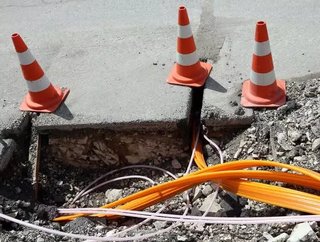Australia’s Telstra to compensate 42,000 customers amid ongoing NBN saga

Telstra, Australia’s largest telco, has agreed to offer compensation to approximately 42,000 customers after it advertised higher than delivered broadband speeds.
The deals involved surround the company’s National Broadband Network (NBN) packages. NBN, a state-owned enterprise charged with overseeing the rollout of fast broadband nationwide, has been blighted by cost and political issues since the project was conceived in 2009.
Among these deals offered by Telstra were a ‘Super Fast Speed Boost’ which advertised maximum download speeds of up to 100 megabits per second (Mbps) and maximum upload speeds of up to 40 Mbps (100/40 Mbps).
Limitations on the affected customers’ NBN fibre to the node (FTTN) or fibre to the building (FTTB) internet connections, however, meant that many customers’ internet services were not capable of receiving the maximum advertised speeds of the plans.
RELATED STORIES:
- What has gone wrong with Australia’s National Broadband Network?
- Australia’s Telstra boosts IoT portfolio with MTData acquisition
- Read the latest edition of Gigabit magazine
Australian Competition and Consumer Commission (ACCC) Chairman Rod Sims said: “All businesses have a responsibility to ensure that claims about the performance of their products or services are accurate. This is particularly important in cases where consumers sign long-term contracts to acquire a service. Telecommunications contracts are typically 12-24 months in duration and this can represent a serious financial commitment.”
A breakdown of the affected customers shows that:
- 26,497 (56%) of FTTN customers on the 100/40 Mbps plan could not receive 100/40 Mbps. Of those customers, 9,606 could not receive 50/20 Mbps, which was the next speed tier plan down.
- 6,352 (45%) of FTTN customers on a 50/20 Mbps plan could not receive 50/20 Mbps.
- 9,342 (2%) of FTTN customers on a 25/5 Mbps plan could not receive 25/5 Mbps.
Another cause of the failure to deliver advertised speeds is the under-purchasing of capacity by telcos from the NBN network. However, the cost of purchasing additional capacity has been cited by several retailers as being unviable – this is one of the major arguments derailing the progress of the rollout.






